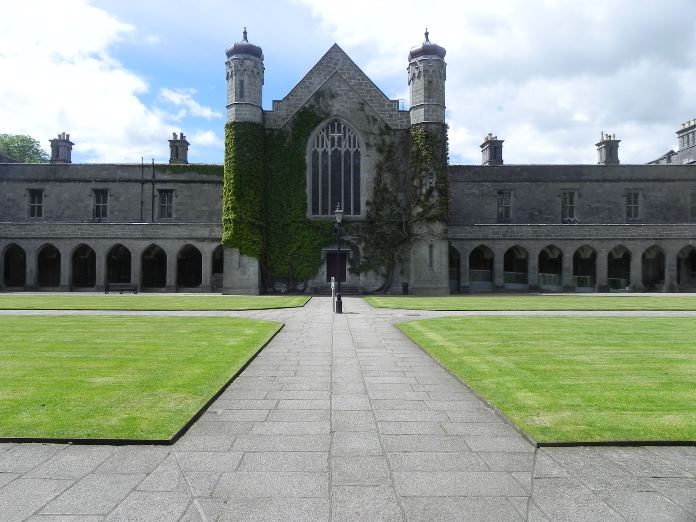By Aaron Deering
On the 1st of October 2019, Minister for Education Joe McHugh announced that History will be designated a ‘’special status’’ subject for the junior cycle. This move by the Minister went against the advice of the National Council for Curriculum and Assessment (NCCA), which argued that History should remain an optional subject.
Responding to the Minister for Education Joe McHugh’s decision to make History a special status subject and mandatory at Junior Cert level, Dr Padraig Lenihan, Professor of History at NUI Galway couldn’t hide his delight; “I am over the moon that he had the courage to act despite the advice of the Sir Humphreys Report, because the embedded departmental preference, reflected in the National Council for Curriculum and Assessment advice, was for packing in new subjects – in NCCA-speak ‘giving schools greater flexibility to meet students needs’ and squeezing out history as the designated target of such ‘flexibility’”. In response to criticism that the decision made by the Minister would affect the teaching of other subjects, such as science, Dr Padraig Lenihan said, “Critics object making history a core subject again because it will limit scope to deliver other subjects such as science, languages, and geography, but the real problem was that the curriculum was being overloaded with subjects (not science, languages or geography) of limited intellectual or educational merit. McHugh’s decision was a ’brave and bold act’ to quote the History Teachers Association”.
Mr McHugh has cited issues, such as Brexit, as key to highlight the importance of History as a subject and that current events, such as this, influenced his decision to make History a special status subject. When asked if he agreed that current events, such as Brexit, highlight the importance of History as a subject, Dr Lenihan looked to history to point out that this isn’t the first time Ireland has played a pivotal role in British affairs. “Most of what seems terribly important and urgent to us today will be forgotten. Probably not Brexit, though. That has thrown up a constitutional crisis, a breakdown in relationships within and between the various institutions, like parliament, monarch, and the judiciary. That crisis reminds me of nothing so much as the Home Rule crisis of 1912 and the army mutiny that accompanied it, encouraged by the parliamentary opposition, or the Catholic Emancipation controversy, which peaked in 1829 with the King’s initial refusal to sign off on Catholic Emancipation. All crises with an Irish dimension, interestingly”.
When asked why History is still an important subject for second-level students to study, Dr Lenihan remarked, “Most important is what Diarmaid Ferriter calls the ‘validation of history as an intrinsically important school subject’. History is about creating and shaping a story, a narrative arc, of collective experience. Without history, is there a way to imagine and communicate collective experiences? Yes, stories will be thrown up, but a historical training gives the recipient the skill to discern the myths, the lies, the misrepresentations, the trivial”.
Asked how the Minister’s decision would affect History at third level, Dr Lenihan points out NUI Galway has been an exception, with demand for history staying steady. “Downgrading History at second level had already reduced the numbers taking the subject and, at a purely practical level, this would have hit the numbers taking History in university. We in Galway had not seen that yet. Demand is steady, having dropped some years ago because of a general turning away from the Arts subjects”, he noted.
The Minister for Education has ruled out giving any other subjects ‘special status’ and, when asked if he thinks other subjects should be granted a similar status, Dr Lenihan said that it wasn’t for him to say, but did acknowledge the important role other subjects played in his career; “In my own work, I think spatially, and always try to capture the regional variability of historical experience. I owe an awful lot to geographers for showing me how to attempt that and I especially admire the work of scholars like Patrick Duffy, William J. Smyth, Kevin Whelan, and Annaleigh Margey”.
When questioned on the challenges History, as a subject, faces and if there were any changes he’d make to attract more interest in the subject, Dr Lenihan points to three things, the absence of Gaelic Irish history being taught. ‘’How do you make history more interesting without ‘dumbing down’? Isn’t that the problem with any subject? That’s why we pay teachers so much and value them so highly. Seriously though, three things occur to me. History interconnects with so many other realms that it should explicitly draw from other subjects, especially geography and languages at second level, or other disciplines such as archaeology, philosophy, classics or law, not found at second level”.
He continued, “As someone who writes about the seventeenth century, I could be accused of special pleading, but I am often struck in teaching about Gaelic Ireland just how lamentably little my students – most of whom had studied history in second level – know about the world that existed before the Anglicizing blanket descended. Do they know that Irish was probably, after Greek and Latin, the first written language in Western Europe? That during the so-called ‘Dark Ages’, the Irish played a key role in transmitting Christian and classical learning? The five-punt note had a picture of John Scotus Eriugena. Scotus was what someone from Ireland was called then and Eriu gena meant ‘Ireland-born’. This ninth century philosopher was the leading scholar of the whole epoch. More prosaically, surnames – even today – are mostly of Gaelic origin, even when they have an English form. Most Smiths in Ireland are O’Gowans who tried to ‘pass’. Quirke and Oates are the same name. And so on. It can be interesting to try and locate them to some Oireacht”.
